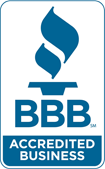
Alabama Attorney Advocating for Debtor Rights
In order to obtain a discharge of your consumer debts, it is critical to fill out the paperwork honestly, accurately, and completely. If you inadvertently fail to list certain debts, those creditors will not be given notice, and you will not be able to discharge those debts. Accordingly, it may be unwise to make an emergency bankruptcy filing. You may omit information that could cause your case to be dismissed or your discharge to be incomplete. However, certain situations may necessitate an emergency bankruptcy filing. For example, if you are about to lose your home in a foreclosure sale, or you are facing wage garnishment or a debt collection lawsuit, filing for bankruptcy can trigger an automatic stay that buys you a little time to sort out your affairs and determine next steps. Alabama bankruptcy lawyer Charles Grainger can advise you on whether this strategy may be appropriate for your circumstances.
Emergency Bankruptcy Filings
Emergency bankruptcy filings are appropriate when a debtor desperately needs the protection of an automatic stay to stop an adverse action from being taken by a creditor. The automatic stay is one significant benefit of filing for bankruptcy because it halts all collection activities. You can check with the court to figure out which forms should be submitted right away, and which can be filed 14 days later.
Generally, the minimum documents you must file in an emergency bankruptcy filing are a Form 1 Voluntary Bankruptcy Petition, a creditor mailing matrix, and a Form 21 statement of social security number. You may need to file a certificate of credit counseling, or a motion to explain why you are not filing it. In some courts, you will also need to file an order dismissing a Chapter 7 case to be processed in the event that you do not file the remainder of your paperwork in time.
If you are filing for Chapter 13 bankruptcy, you might need to file a pay order that describes your estimated debt repayment plans. You will also need to pay your filing fee, or if you are exempt, you will need to file an application for a waiver. These are a bare minimum, and in some cases, the bankruptcy court will add additional local requirements.
Usually, the court clerk will notify your creditors that you have filed for bankruptcy and that there is an automatic stay on all debt collection efforts. However, since you are filing on an emergency basis, the clerk may not be able to stop a particular collection effort in time. You should provide this notice of your filing directly to creditors to make sure that any critical collection efforts, such as foreclosure, are stopped in time.
You have 14 days from the initial emergency filing to file all the other necessary schedules and paperwork. If you do not file the other necessary paperwork in time, your case is likely to be dismissed, and the automatic stay will be lifted. You will be able to file again if you need to do so, but it is wise to simply file your forms correctly and on time to obtain the full benefits of filing for bankruptcy. To that end, an experienced bankruptcy attorney can make a big difference in your case.
Enlist an Experienced Bankruptcy Lawyer in Alabama
At Grainger Legal Services, a skilled Alabama bankruptcy attorney can counsel you on whether it may be appropriate to file for bankruptcy and prepare an emergency bankruptcy filing if necessary. We have offices in Prattville, Montgomery, and Troy. Call us at (334) 260-0500 or contact us online to schedule a free consultation with a debt relief attorney.


 Attorney Charles Grainger possesses decades of legal experience focused on debtor-creditor law, bankruptcy, and business law. His legal work is designed to help clients overcome debt and secure a stronger financial footing. He also provides legal services to entrepreneurs and business owners. Grainger Legal Services takes a comprehensive approach to debt relief and financial education for clients in south-central Alabama. [
Attorney Charles Grainger possesses decades of legal experience focused on debtor-creditor law, bankruptcy, and business law. His legal work is designed to help clients overcome debt and secure a stronger financial footing. He also provides legal services to entrepreneurs and business owners. Grainger Legal Services takes a comprehensive approach to debt relief and financial education for clients in south-central Alabama. [ 


